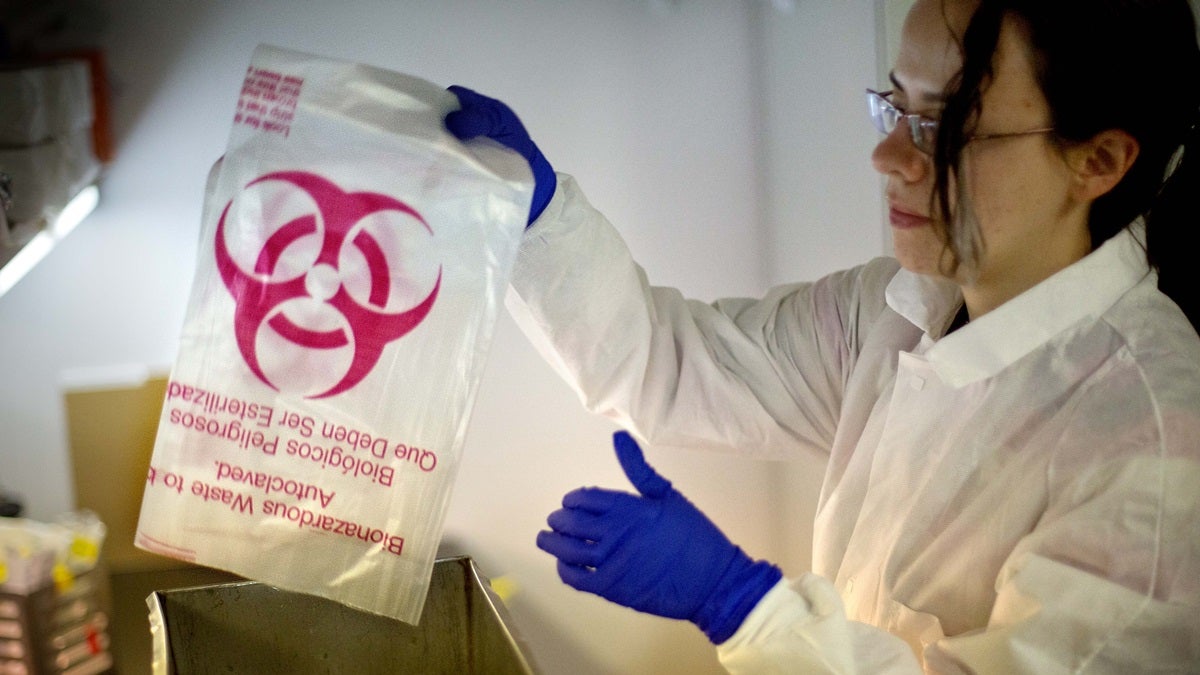Delaware resident is the first in the U.S. to contract rare drug-resistant bacteria

(AP Photo/David Goldman)
An 81-year-old Delaware man is the first person in the United States to contract a mulitdrug-resistant bacterial infection, caused by an organism that was first found in Serbia.
According to the Centers for Disease Control and Prevention, the New Castle County resident is the first in America to come down with a case of NDM-producing carbapenem-resistant (CR) Pseudomonas aeruginosa. The man was initially hospitalized in Delaware, but has been transferred to a facility in Pennsylvania for treatment.
The Delaware Division of Public Health is working with the CDC on the investigation into how the man contracted the bacteria. DPH is now testing the man’s hospital roommates from his time getting treatment in Delaware.
“NDM” is an antibiotic-resistant gene that has been seen in different groups of bacteria in the past several years in the U.S. and other parts of the world, but the Delaware case is the first time the gene has been reported in Pseudomonas in the US.
About 51,000 health care-associated cases of P. aeruginosa infections happen every year in the U.S., with about 6,000 of those cases being multidrug-resistant. About 400 deaths every year are attributed to those infections.
DPH says as antibiotic resistant infections become increasingly common, they recommend limiting the use of antibiotics to only when necessary for treatment of multi-drug resistant cases.
WHYY is your source for fact-based, in-depth journalism and information. As a nonprofit organization, we rely on financial support from readers like you. Please give today.





